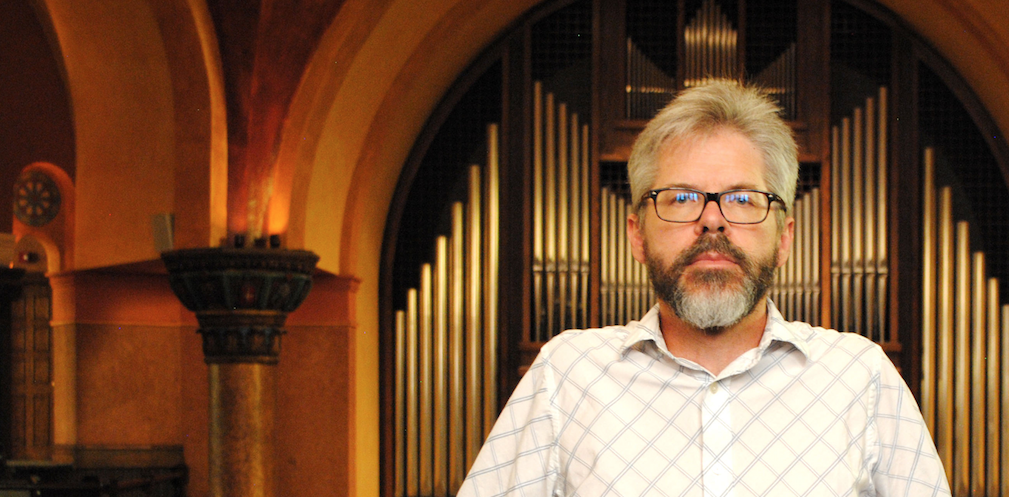Carleton University to decide on purchase of Dominion-Chalmers United Church
By Kelly Millar and Nate Dove
Carleton University has already received offers of major donations for the possible purchase of Dominion-Chalmers United Church as a performing arts hub — increasing the chances that the 1,000-seat venue will continue or even expand its role as a downtown concert hall while allowing the financially challenged congregation to avoid selling their worship space to a commercial developer.
The university is expected to decide by the end of October whether to buy the century-old church at the corner of Cooper and O’Connor streets, principally to showcase the talents of students enrolled in Carleton’s music program but also to continue hosting Ottawa Chamberfest, the TD Ottawa Jazz Festival and other high-profile concerts and cultural events.
Carleton’s interim president Alastair Summerlee said the university has received offers of donor money to make the purchase should its board of governors vote to proceed with the purchase.
“It will not be a direct cost to the institution and therefore will not affect the finances of the university in a negative way,” said Summerlee about the proposed acquisition.
Negotiations have been ongoing with Dominion-Chalmers since the university’s governors discussed the project in June, but Carleton has been contemplating a new performing arts space for a while, said Paul Théberge, assistant director of Carleton’s music program.
“That’s a costly affair to build something like that from scratch, but then the DC church came up … and one idea melted into another,” he said.
Théberge said that this purchase would be “transformative” for the music program, but that other departments and groups on campus would also make use of the space.
He added that hosting community events is “central to the whole idea” of purchasing the property.
In recent years, the fate of the old stone church has been in doubt due to financial strains and a dwindling congregation.
“Fifty years ago we had over 2,000 members — today we have less than 200,” said Rev. James Murray. “It’s just getting beyond our means to carry a building this large.”
The proposed purchase is seen as a way to create a new facility for Carleton while preserving a prime performance venue for the broader community.
“Downtown Ottawa doesn’t need more condos, and though developers are very interested in this location, we think there’s a better purpose for it,” said Murray. “[Carleton] would open a lot more doors but also keep the vital life of the culture of this city going.”
The plan, said Murray, is to collaborate with stakeholders who have already been using the facility. It’s expected that festival shows and other community events would continue – and there are hopes that the church’s religious role would be maintained, as well.
The church is considered one of Ottawa’s best venues for live music, and there has been growing concern within the local performing arts community that the possible sale of the building to a developer would result in a major loss to the city’s cultural sector.
“It’s really all we’ve got… in terms of a high-level performance space,” said Julian Armour, artistic and executive director of Music and Beyond, the city’s annual classical music festival.
He said it’s absolutely “essential” that the church remain available for the community, because many performance groups have “nowhere else to go.” He said Dominion-Chalmers is the only building in the capital region that serves as the right-sized concert hall for many kinds of unamplified performances.
According to Armour, who has led previous initiatives to secure a major new music venue for the capital, the church is the perfect size for many Ottawa music events. Whereas the National Arts Centre is a wonderful opera facility, he said, what festivals like Chamberfest really need is a venue that seats 800 to 1,000 people with just the right acoustic qualities and other features.
The church, possibly with some alterations to create more lobby space and make other improvements, could fit the bill.
The university is also hoping to extend the church’s potential beyond its use as a performance centre. Summerlee said Carleton is currently reviewing possible additional uses such as a professional recording studio, a downtown gallery space as an extension of the Carleton University Art Gallery, and a premier space for public lectures hosted by the school.
Summerlee explained that the board of governors signed a 90-day expression of interest in August to explore the possible purchase of the church. This exploration period is giving the university time to consult with independent experts to examine factors such as an academic rationale for using the space, a building assessment, and identification of potential partners in the project.
The three-month exploration period gave the university governors until late October to make a preliminary decision, then take negotiations to the next stage.
But there are challenges surrounding the purchase.
Randy Wilts, a partner at the engineering firm Windmill Developments, which has experience purchasing and adapting historic churches, said repurposing historic buildings can be difficult.
He pointed out that such structures often “have a huge maintenance bill associated with them,” and that finding tradespeople capable of working on such projects never comes cheap.
The buildings tend to be energy inefficient and therefore costly to operate, he added. Wilts also identified the parking lot of the church as a great opportunity for “gentle gentrification” that Carleton could try to get developed.
But Summerlee said the church should be financially sustainable without turning the property into a real estate play.
“We certainly don’t have any plans,” he said, “to build Condo 101 on the carpark.”
This story was produced in collaboration with Centretown News.

